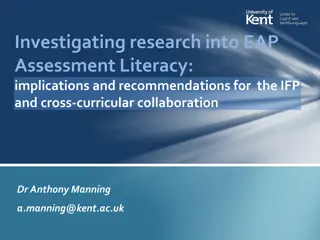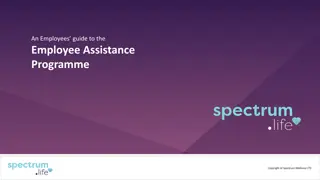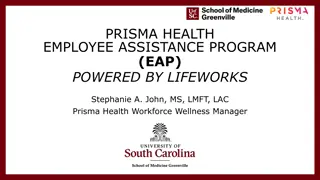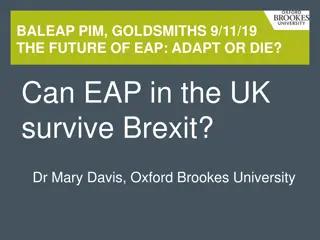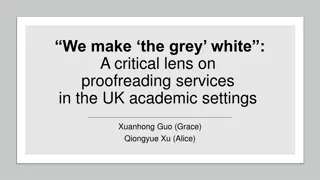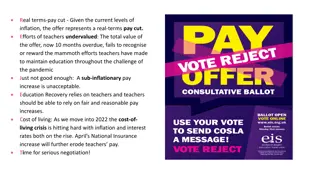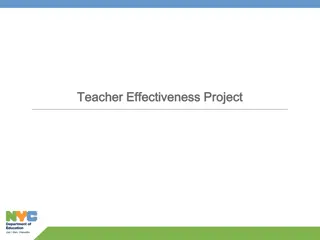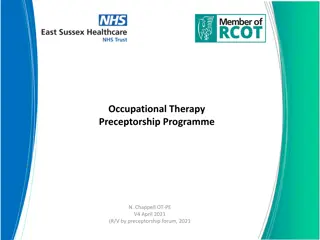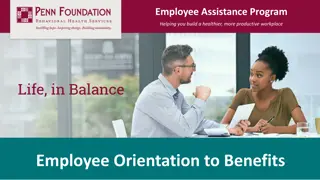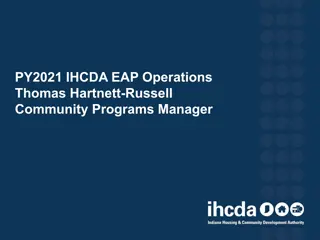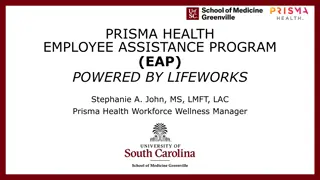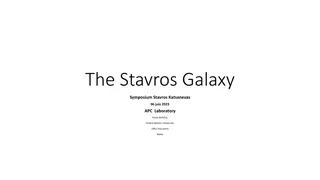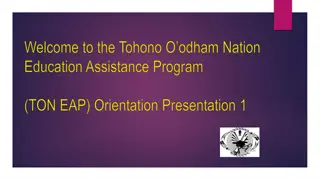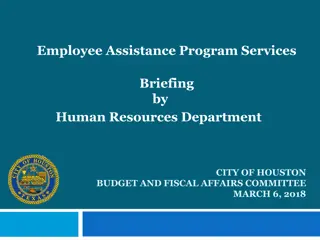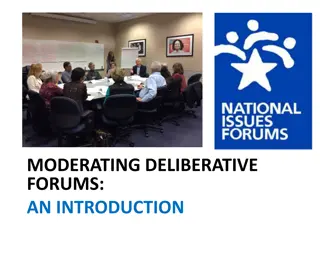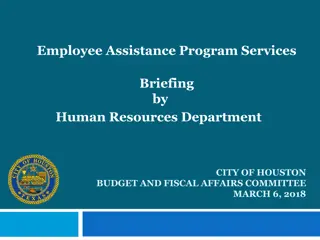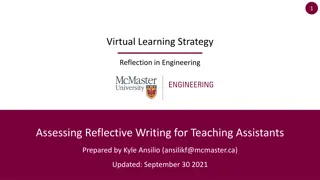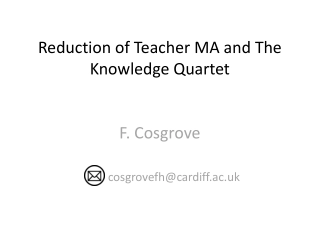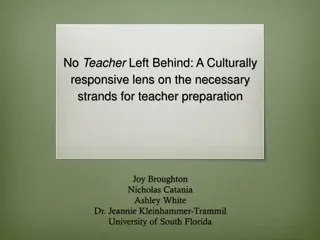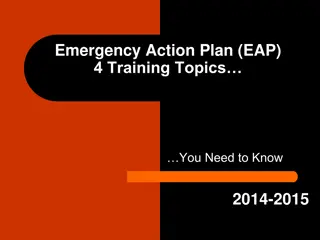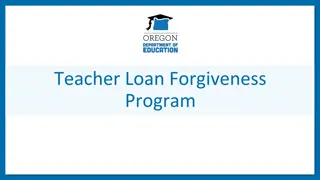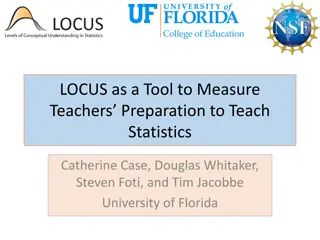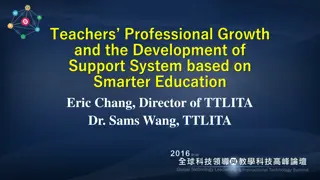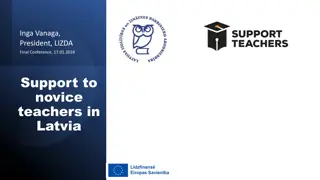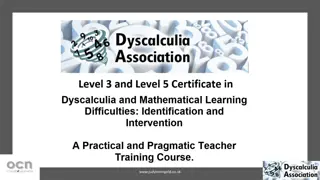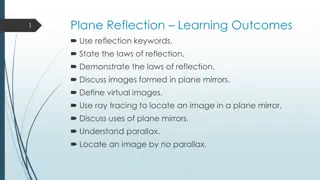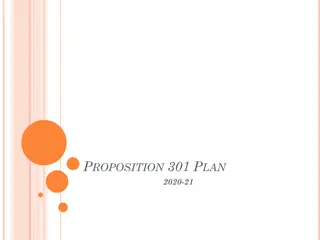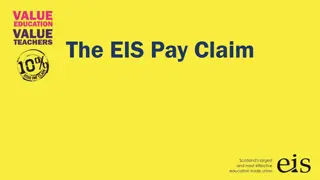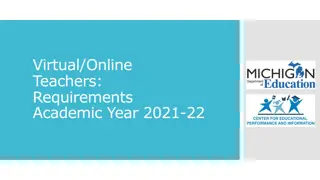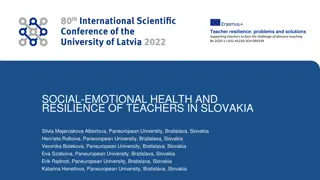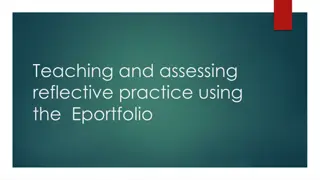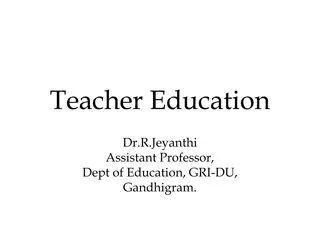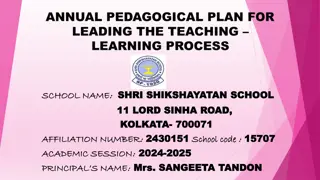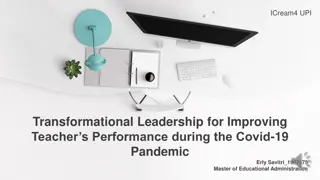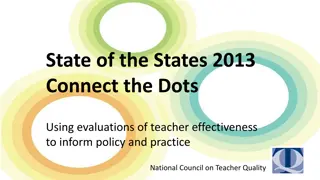Enhancing EAP Teacher Development Through Teachers Forums and Group Reflection
Explore the use of Teachers Forums for EAP Teacher Development, providing a space for peer support, feedback, and discussions on pedagogical practices. Learn how these forums promote collaboration, shared experiences, and continuous professional growth among educators. Gain insights from reflections by Jeni Driscoll and Rob Playfair on the benefits of engaging in group dialogue and knowledge sharing within the EAP teaching community.
Download Presentation

Please find below an Image/Link to download the presentation.
The content on the website is provided AS IS for your information and personal use only. It may not be sold, licensed, or shared on other websites without obtaining consent from the author. Download presentation by click this link. If you encounter any issues during the download, it is possible that the publisher has removed the file from their server.
E N D
Presentation Transcript
Teachers Forums: Using group reflection and dialogue for EAP Teacher Development BALEAP PIM: From EAP Teacher to EAP Educator. Sheffield, November 12 2022 Jeni Driscoll, Anna Fox, Wil Hardman (University of Liverpool) and Rob Playfair (Birkbeck University)
Overview Why Teachers Forums? Format Evaluation Ongoing questions
Why we created Teachers' Forums? We needed a space: to have meetings that attended to pedagogical rather than operational matters to get feedback and peer support by discussing our materials, approaches, experiences and problems to promote productive, positive and meaningful discussions teachers want to engage in to address the challenges and potential for isolation for In-Sessional discipline-specific teachers to explore a 'shared' approach and clarify our remit, without being prescriptive
Initial format in 2018: In-Sessional Teachers' Forum Prepare to present: 1 example of something that worked well 1 example of something that didn t work so well Each tutor presents individually followed by Q&A / group discussion 10 minutes each including Q&A Facilitator sets running order and 'chairs' Teachers talking about teaching
Jenis reflections Gained valuable feedback and learnt from each other in terms of EAP practice Shared experience and understanding of practitioner identity Established a judgement-free space where I can talk about mistakes and what we can learn from them Explored and discovered different ways of doing EAP Engaged in collaborative and supportive knowledge building in TFs - knowledge building doesn't have to be a race or a competition
Robs reflections Status: Equal time to share: my experience and ideas were as valued as more experienced colleagues Motivation: Gave my professional development a regular, low-stakes goal to work towards: What problem do I want to bring to the forum this time? How can I express it in a productive way? Will this be relevant / of interest / impressive to colleagues? Community: Discussing our thinking behind the materials gave insights into colleagues principles, knowledge and expertise. EAP is not random!
Wils reflections Raised my awareness of my own beliefs about language & teaching (in contrast to those of other teachers) - Standardised English vs language as a meaning-making resource - Dialogic pedagogy vs teacher-centred Gave me a broader idea of what EAP can be: - Further emphasised the importance of a principled approach to EAP (informed by literature) - Inspired me to incorporate different theories & approaches e.g. SFL and LCT Helped me to build my identity as an EAP educator / practitioner
Themes we generated from our reflections Build knowledge Build community Promoted reflection Provide support (practical and emotional) Foster a shared approach / assure quality Develop / reaffirm / challenge beliefs Develop practitioner identity and agency
A theory for the forum? Problem-posing (led to a critical awareness of our reality) Grounded in practice but connected to theory Dialogic Non-prescriptive & flat power relations (co-investigators) Ongoing and never complete Generates a set of themes that themselves become the object of reflection A form of praxis: "reflection and action upon the world in order to transform it" (p.33) Freire (1996)
Did we achieve what we set out to with the In-Sessional Teachers' Forum? We needed a space: to have meetings that attended to pedagogical rather than operational matters to get feedback and peer support by discussing our materials, approaches, experiences, problems, ideas and theories to promote productive, positive and meaningful discussions teachers want to engage in to address the challenges and potential for isolation for In-Sessional discipline- specific teachers to explore a 'shared' approach and clarify our remit, without being prescriptive Also a collaborative autoethnography research project! Adamson, J., & Muller, T. (2018)
Evolving format as of 2022 Prepare to present/explore: something that that worked well something that didn t work so well something we'd like to try in a class something you're thinking about/reflection a way of incorporating a theory into our teaching Each tutor presents individually followed by Q&A / group discussion 10 - 30 minutes each over 3 separate sessions Facilitator provides a written summary of key points discussed Teachers talking even more about teaching
Ongoing questions 1. To what extent can (or should) TFs create a 'shared approach' to EAP? 2. How do TFs relate to other forms of CPD/Quality Assurance? 3. How could TFs be misused or misconstrued? (e.g. appropriation by management, attendance) 4. How would the TFs work in other contexts? (e.g. pre-sessional vs in- sessional, cross-institutional, professional associations)
References Adamson, J., & Muller, T. (2018). Joint autoethnography of teacher experience in the academy: exploring methods for collaborative inquiry. International Journal of Research & Method in Education, 41(2), 207- 219. Freire, P. (1996). Pedagogy of the Oppressed. Translated by Myra Bergman Ramos. Penguin Group
Thank you for listening If you have any questions, please join Session 4, 2:00-2:40 on Saturday 12th November, LT7: Online talks and workshops for the Q&A. You can also contact us via Jeni.Driscoll@liverpool.ac.uk william.hardman@liverpool.ac.uk rplayf01@student.bbk.ac.uk On Twitter: @RobPlayfair @HardmanWil


